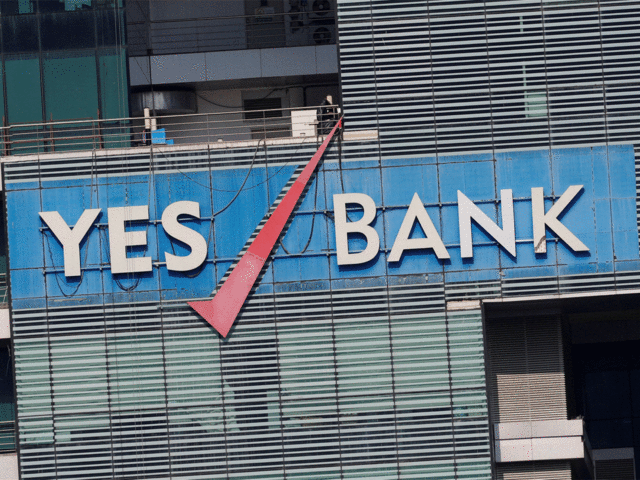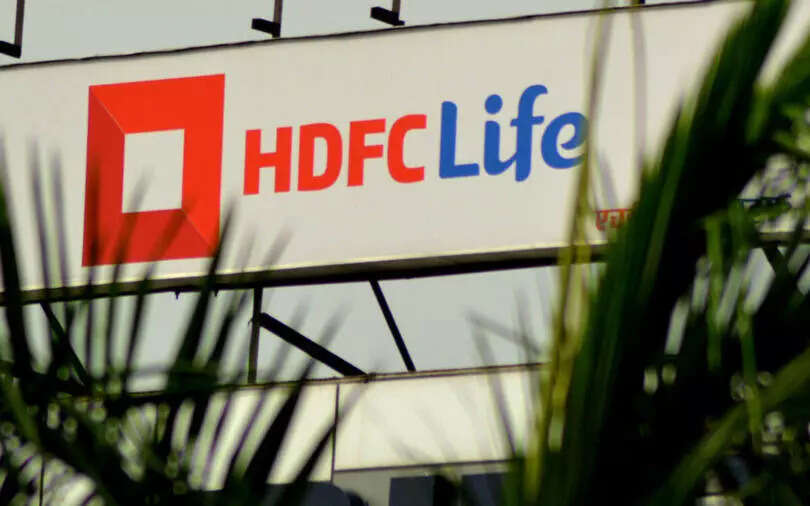The Indian equity market witnessed volatility during the week, with domestic benchmark indices ending in the red in four out of five sessions. The Nifty50 on Friday closed at 18,114, with more than 1% weekly loss, but investors were prompt to take corrections as a buying opportunity.
The Nifty Bank remained the star performer, crossing the 40,000-mark, with more upside to come in banks. Banks, including PSU banks, were the main sectoral gainers while FMCG, Metals, Realty, Pharma and Auto were the largest losers.
According to experts, immediate support for Nifty50 is coming near the 18,000-mark. If the index manages to hold above the mark, the market can expect a swift pullback. Meanwhile, resistance is seen near 18,250-18,350.
Festival demand outlook, Jul-Sep earnings data backed by recovery in economic activity, vaccination numbers crossing 1 bln mark, developments around Asian markets, healthy FPIs and exports data, strong industrial production data, developments around the US economy, inflation fears, global energy crisis, were key driving factors this week.

Monday Closing bell: Market closes higher for seventh session, Nifty PSU Bank gaining nearly 4%
Extending their winning streak into seventh straight session, Indian indices ended with record gains on Monday, led by banks and financial stocks. The Sensex hit a record high of 61,963, while Nifty touched an all-time high of 18,525 intraday.
At the end of the day’s trade, the Sensex settled 0.75% higher at 61,765, while Nifty50 added 0.76% to close at 18,477. The broader market was positive, with midcap and smallcap stocks also clocking stellar gains.
The Nifty PSU Bank outperformed with nearly 4% gains to close at 2,824. The Nifty Bank index also ended the day with strong gains and ended 0.87% higher at 39,864, while Nifty Financial Services closed 0.46% higher at 19,034. Most of the banking stocks had a good run on Monday after strong numbers posted by HDFC Bank.
Tuesday Closing bell: Dalal Street closes in red, snaps seven-day winning streak
Sensex, Nifty witnessed a volatile session on Tuesday, ending in the red after having touched fresh all-time highs earlier in the day. At the closing bell, S&P BSE Sensex finished 0.08% lower at 61,716, while NSE Nifty 50 ended the day at 18,418, down from an intraday high of 18,604.
Broader markets fared worse than the benchmark indices to end deep in the red as Nifty Midcap 50 closed 2.22% lower, while the Smallcap 50 was down 1.47%
The Nifty Bank index touched 40,000 intraday but closed 0.36% lower at 39,540, while Nifty Financial Services ended flat with positive bias to close 0.18% higher at 19,068. After gaining nearly 4% in the previous session, Nifty PSU Bank Index ended 3.74% lower on Tuesday.

Wednesday Closing bell: Bears pull down benchmark indices, Bank Nifty close flat with marginal losses
Domestic equity indices continued to fall for the second consecutive session on Wednesday amid heightened volatility. S&P BSE Sensex 0.74% lower at 61,259, while the NSE Nifty 50 index fell 0.83% to settle at 18,266.
In broader markets, the BSE Midcap index shed 1.9% to close at 25,915, and the Smallcap index tumbled 2.3% to end at 28,879.
The trend remained largely negative, with only PSU bank indices closing in the green, up 1.54%. Bank Nifty closed flat with marginal loss of 0.6% at 39,518, while Nifty Financial Services closed 0.58% lower at 18,957. SBI, IndusInd Bank, and Bajaj Finance were the top gainers on the Nifty50 index while Bajaj Finserv was among the top laggards.
Thursday Closing bell: Market ends flat with negative bias, banks and financials outperform
A flat recovery, led by select financial shares, helped key benchmark indices recoup some of their losses. BSE Sensex fell over from the day’s high to end below the 61,000-mark at 60,923. The Nifty50 also oscillated between 18,384 and 18,048 during the day before signing off at 18,178.
The broader markets moved in tandem, with the BSE Midcap and Smallcap indices falling 0.4% and 0.7%, respectively.
The Nifty Bank index, meanwhile, ended 1.3% higher at 40,030 after hitting a new record high of 40,200 intra day, while Nifty Financial Services gained 1.22%, closing at 19,188. Kotak Mahindra Bank rallied 6.5% to close as the top Sensex gainer, followed by HDFC, ICICI Bank and SBI.
Stealing the show, Nifty PSU Bank index added nearly 3%, led by Union Bank of India, Indian Bank, Bank of Maharashtra, UCO Bank, and PNB.
Friday Closing bell: Markets end in red for fourth session, banks and financials fare well
Bulls attempted to make a comeback during the early trade on Friday but failed to hold their ground, forcing Dalal Street to close in the red for the fourth day running.
At close, S&P BSE Sensex fell 0.17% to close at 60,821 while NSE Nifty 50 dropped 0.35% to end at 18,114. Midcap and small-cap indices fared worse than largecap peers, lossing more than 1% each.
Bank Nifty index continued to outperform , closing at 40,323, up 0.73%, while Nifty Financial Services closed 0.59% higher at 19,302. Nifty PSU Bank ended the day with a loss of 0.47%.
HDFC was the top Sensex gainer, jumping 2.25%, followed by IndusInd Bank, and Kotak Mahindra Bank. PNB, Power Finance and Chola Invest were among top drags.
Banks and financial services- September quarter results

HDFC Bank: the bank on Saturday reported a standalone net profit of Rs 8,834 crore, up 18% from Rs 7,513 in the year-ago period. Core operating profits came at Rs 15,131.8 crore, up 18.24% YoY and 4.1% Q-o-Q.
HDFC Bank’s net interest income (NII) plus other incomes increased by 14.7% to Rs 25,085.2 crore. GNPAs were at 1.35% of gross advances as on September 30, 2021, as against 1.47% as on June 30, 2021.
Provisions came down 18.8% at Rs 3924.7 crore. The bank’s loans grew 15.5% from a year ago, about three times the banking sector’s rate.
Federal Bank: Private sector lender reported a near 50% jump in net profit for the September quarter on lower provisions and improvement in asset quality even as its total income shrunk.
The net profit stood at Rs 460 crore compared with Rs 308 crore in the year-ago period. Total income fell about 3 per cent at Rs 3,824 crore from Rs 3,937 crore.
Operating profit fell by about 9% at Rs 865 crore from Rs 947 crore over the same period. However, a 54% lower provisions at Rs 245 crore helped the net profit surge.
YES Bank: The bank today reported a 74.3% y-o-y growth in net profit to Rs 225 crore for the said quarter against analysts’ expectations of a Rs 31 crore net loss.

The NII fell 23.4% y-o-y to Rs 1,512 crore. The healthy bottomline performance of the lender was thanks to a sharp decline in provisions. YES Bank’s provisions for bad loans declined 65% to Rs 377 crore.
GNPAs ratio fell to 15% from 15.6% in the previous quarter. Similarly, net NPA ratio came in at 5.5% as against 5.8% in the previous quarter.
Bank of Maharashtra: Net profit jumps 103 % to Rs 264 cr. The bank’s recovery from written-off accounts stood at Rs 340 crore, including Rs 258 from the DHFL resolution. Net interest margin (NIM) improved to 3.27%, GNPA declined 5.56% and Provision coverage ratio improved to 92.38%.
Banks’ recovery and up-gradation stood at Rs 645 crore from Rs 556 crore last year around the same time.
IDBI Bank: The bank on Thursday reported a 75% jump in net profit to Rs 567 crore from Rs 324 crore in the same period of the last fiscal. The NII grew 9% to Rs 1,854 crore, NIM improved to 3.02%, compared to 2.70% in the second quarter last fiscal.
Bank’s GNPAs declined to 20.92% against 25.08% a year ago. Net NPAs improved 1.62% from 2.67%. Provisions for bad loans and contingencies also rose to Rs 434 crore.

HDFC Life Insurance: The life insurer on Friday announced a 15.9% fall in its consolidated net profit to Rs 274.16 crore in Jul-Sep, as against Rs 326.09 crore a year ago.
Total income, however, rose to Rs 20,478 crore against Rs 16,426 crore a year ago, while the net premium income increased by 52% to Rs 11,445 crore from Rs 10,056 crore, the insurer said in a regulatory filing.
Value of new business (VNB) recorded a robust 30% growth to Rs 1,086 crore over last year. Profit after tax on the other hand stood at Rs 577 crore for H1, 26% lower than H1 FY21.
LIC Housing Finance: Net profit for the said quarter fell 69% at Rs 248 crore as compared with Rs 791 crore in the year-ago period. NIM for the quarter dipped to 2 per cent as against 2.20% in the June quarter.
The company’s total income for the quarter was lower at Rs 4,715 crore as compared to Rs 4,982 crore during the year-ago period. The NII was Rs 1,173 crore as against Rs 1,238 crore.
Its total loan portfolio stood at Rs 2.38 lakh crore registering an 1% y-o-y growth. During the quarter, total disbursements grew 29%. Retail home loan disbursements grew 38%.

L&T Finance Holdings: The company on Wednesday reported a 10% decline in its consolidated net profit to Rs 223 crore. Total income fell to Rs 3,134.46 crore as against Rs 3,508.91 crore during the year-ago period.
Rural finance business saw the highest-ever Q2 disbursement at Rs 4,987 crore, a jump of 51% quarter-on-quarter. The total disbursements in the quarter stood at Rs 7,339 crore.
GNPAs stood at 5.74% during the quarter, amounting to Rs 4,796 crore. Debt-to-equity ratio stood at 4.40 in Q2FY22. Capital adequacy improved to 25.16%.





